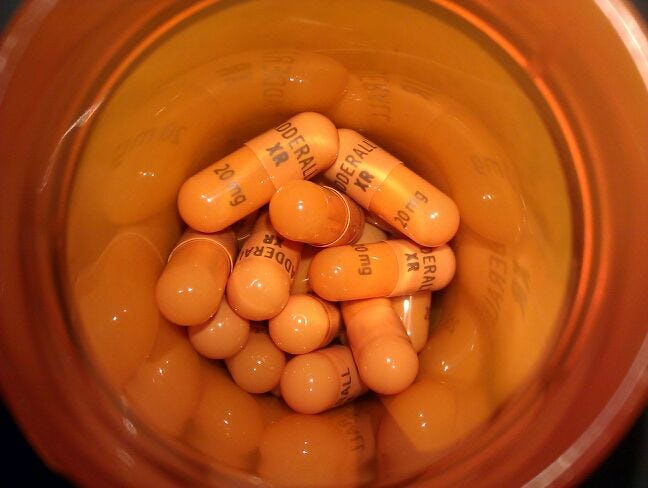


Retention: overall, we found low‐quality evidence suggesting that amphetamines did not improve retention in treatment (risk ratio (RR) 1.06, 95% CI 0.99 to 1.13 17 studies, 2323 participants).Īdverse events: we found that amphetamines were associated with an increased proportion of patients who withdrew because of adverse events (RR 2.69, 95% CI 1.63 to 4.45 17 studies, 2409 participants). Severity of ADHD symptoms: we found low‐ to very low‐quality evidence suggesting that amphetamines reduced the severity of ADHD symptoms as rated by clinicians (SMD −0.90, 95% confidence interval (CI) −1.04 to −0.75 13 studies, 2028 participants) and patients (SMD −0.51, 95% CI −0.75 to −0.28 six studies, 120 participants). Sixteen studies were funded by the pharmaceutical industry, one study was publicly funded, and two studies did not report their funding sources. We found no studies that had low risk of bias in all domains of the Cochrane 'Risk of bias’ tool, mainly because amphetamines have powerful subjective effects that may reveal the assigned treatment, but also because we noted attrition bias, and because we could not rule out the possibility of a carry‐over effect in studies that used a cross‐over design.

Most studies had short‐term follow‐up and a mean study length of 5.3 weeks. All studies were placebo‐controlled, and three also included an active comparator: guanfacine, modafinil, or paroxetine. Eighteen studies were conducted in the USA, and one study was conducted in both Canada and the USA. These studies enrolled 2521 participants most were middle‐aged (35.3 years), Caucasian males (57.2%), with a combined type of ADHD (78.8%). We included 19 studies that investigated three types of amphetamines: dexamphetamine (10.2 mg/d to 21.8 mg/d), lisdexamfetamine (30 mg/d to 70 mg/d), and mixed amphetamine salts (MAS 12.5 mg/d to 80 mg/d).


 0 kommentar(er)
0 kommentar(er)
